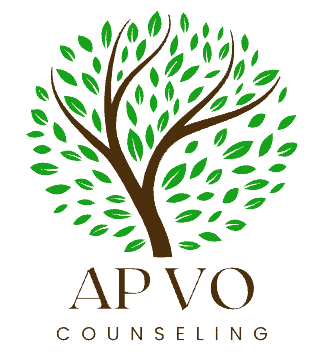Family Counseling
Family Counseling in Houston: Bringing Houston Families Closer Together.
We often wish to have a cohesive family unit—one where everyone communicates, supports each other,
and even enjoys spending time together. However, this ideal isn’t always easy to achieve.
Many of us grew up in caring families, yet also endured emotional neglect. There may have been ongoing conflicts or deep-seated resentments between parent(s) and child(ren), siblings, or extended family members. When there are issues experienced by one person, the whole family can be affected. There are also instances with life transitions where members move too fast or too slow compared to the rest of the family, and that can create tensions and disconnection.
Whether you are facing ongoing conflict, navigating major life changes, or seeking to reconnect, family counseling can help. Family therapy focuses on improving communication, understanding, and connection among family members, including in-laws, by addressing patterns that may contribute to tension or conflict. Through guided conversations, each member has the opportunity to express thoughts and emotions in a safe, structured environment, fostering awareness of generational patterns and how they impact present relationships.
Using a systems-based approach, the family is viewed as an interconnected unit, where each member influences the others. This perspective allows us to begin by identifying root causes of challenges, including intergenerational trauma—patterns of unresolved pain and behaviors passed down through generations—and explore how family loyalty can sometimes create pressure to maintain unhealthy dynamics or silence.
Through family counseling, families can overcome challenges, heal from intergenerational wounds, reconnect, and create stronger, more supportive relationships. Not only will you and your family benefit, but there will be positive impacts on future generations.
Parent-Child Relationships:
Mother and Daughter | Father and Son
Father and Daughter | Mother and Son
The parent-child relationship can face struggles due to miscommunication, unmet expectations, emotional distance, conflicts around boundaries, discipline, and/or life transitions. These patterns can lead to strained relationships, low self-esteem, and ongoing conflict.
Family counseling involves two or more family members. Led by your therapist, parent and child develop healthier speaking and listening skills and learn to set appropriate
boundaries. Over time, communication strengthens, and as a result, trust and connections between parent(s) and child(ren) are rebuilt.
Sibling(s) Relationships
Sibling(s) relationships can be complex, with dynamics that are shaped by individual personalities, birth order, family roles, and shared experiences. Issues between and/or among siblings may arise from rivalry, competition for attention or resources, perceived favoritism, or unresolved childhood conflicts. These tensions can lead to miscommunication, resentment, and/or emotional distance, affecting not only the sibling bond but also the overall family dynamic.
As siblings grow older, life changes, such as parental separation, older children moving out of the home, and/or shifting family roles can further complicate these relationships. Siblings may struggle to navigate new responsibilities, differing coping styles, and/or emotional reactions to shared experiences, which can create friction or deepen existing divides.
Family counseling can help address sibling issues by providing a neutral space where each sibling can express their feelings, concerns, and perspectives. In therapy, you explore the root causes of conflict, whether they are related to family loyalty, past trauma, or unmet emotional needs. Through structured conversations and guided interventions, family counseling can foster empathy, encourage healthy conflict resolution, and strengthen the sibling bond.
Family Therapy for Life Transitions and Loss
Significant life changes, such as the death of a parent, divorce, job transfers, or other major transitions can deeply affect family relationships. Grief, uncertainty, and shifting family roles often create emotional distance, miscommunication, or unresolved tension. Children may struggle with their own feelings of abandonment, anger, or confusion, while parents may feel overwhelmed by their own emotions and the responsibility of supporting their children.
In cases of death of a parent, children and the surviving parent may grieve in different ways, leading to misunderstandings or isolation.
Similarly, divorce can bring complex emotions, such as sadness, loyalty conflicts, or feelings of blame, which may strain parent-child relationships and the family dynamic.
Additional life changes—like remarriage, relocation, or financial strain—can further disrupt stability and connection, leaving families unsure of how to move forward together.
Family counseling empowers families to adapt to new roles, honor shared memories, and create a supportive, compassionate environment. By fostering understanding, resilience,
and connection, therapy will help you and your family heal from loss, overcome transitions, and develop a positive outlook towards the future

